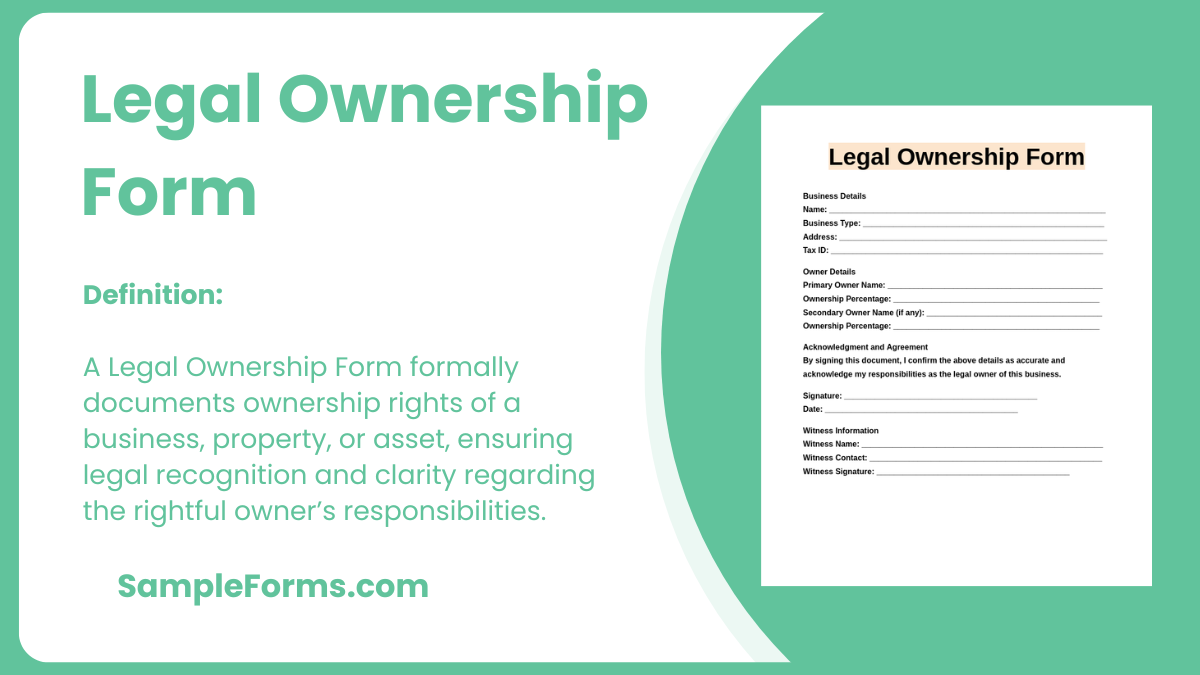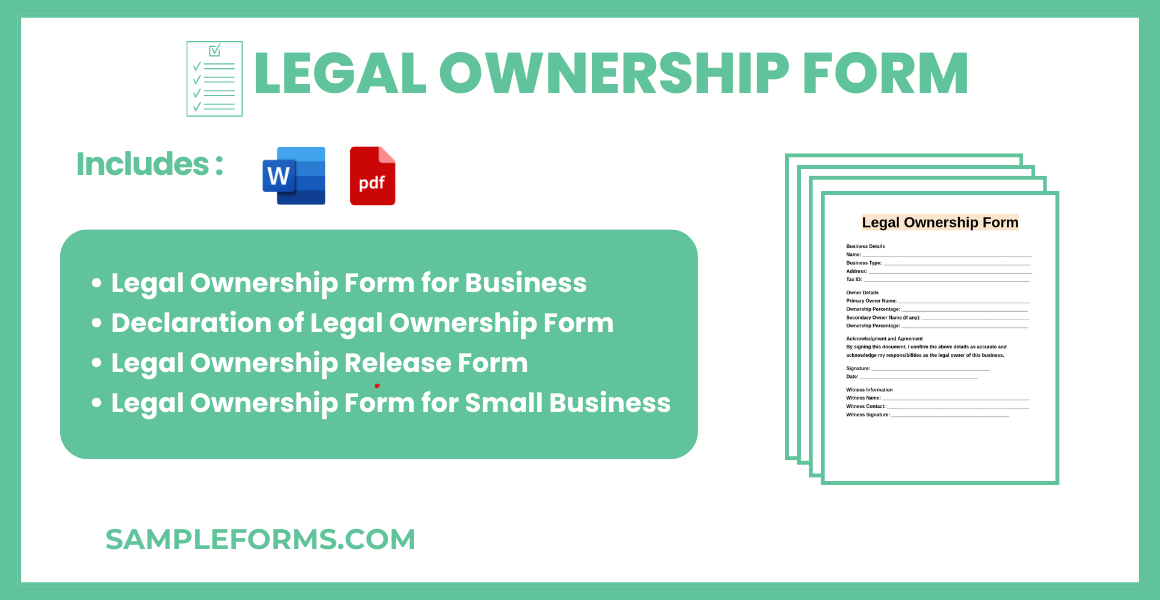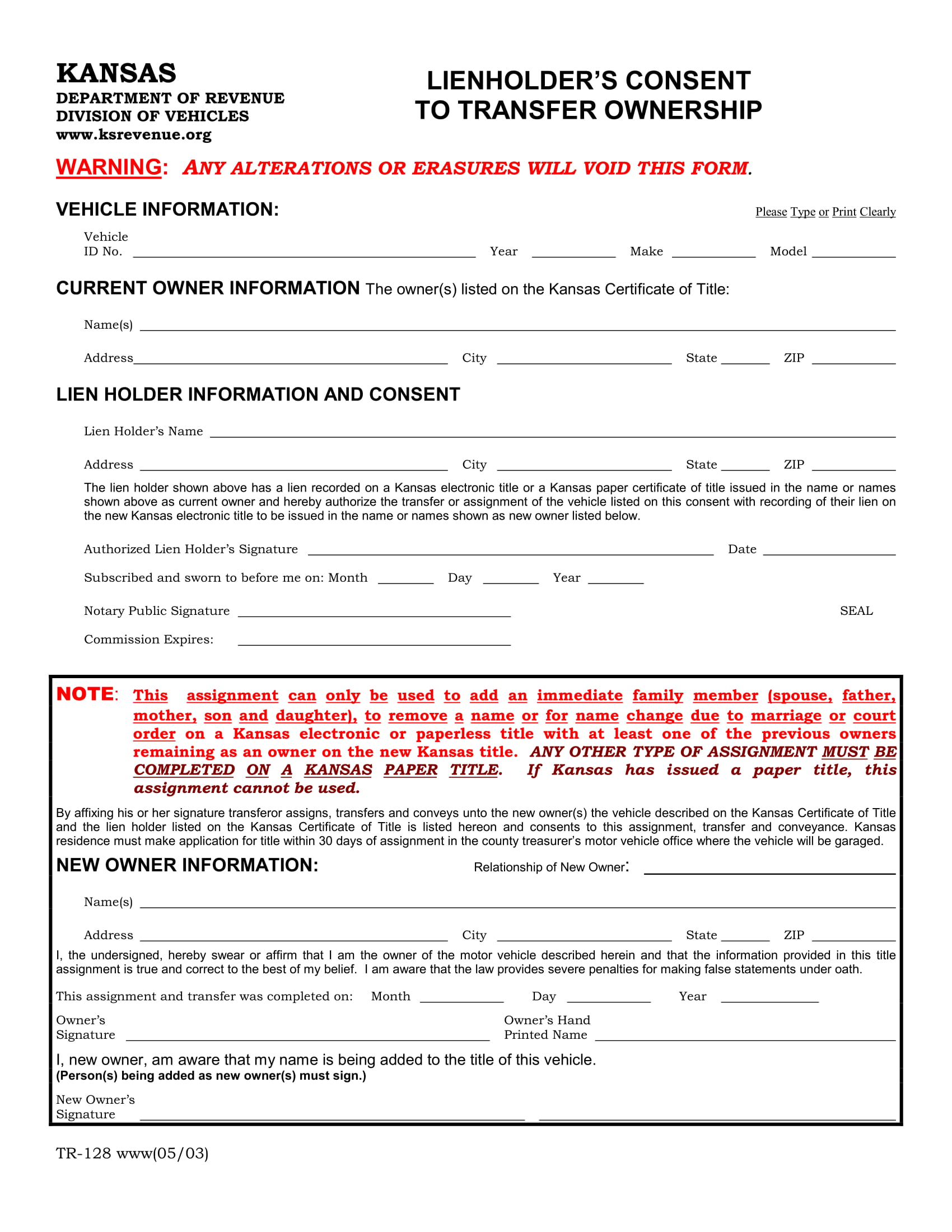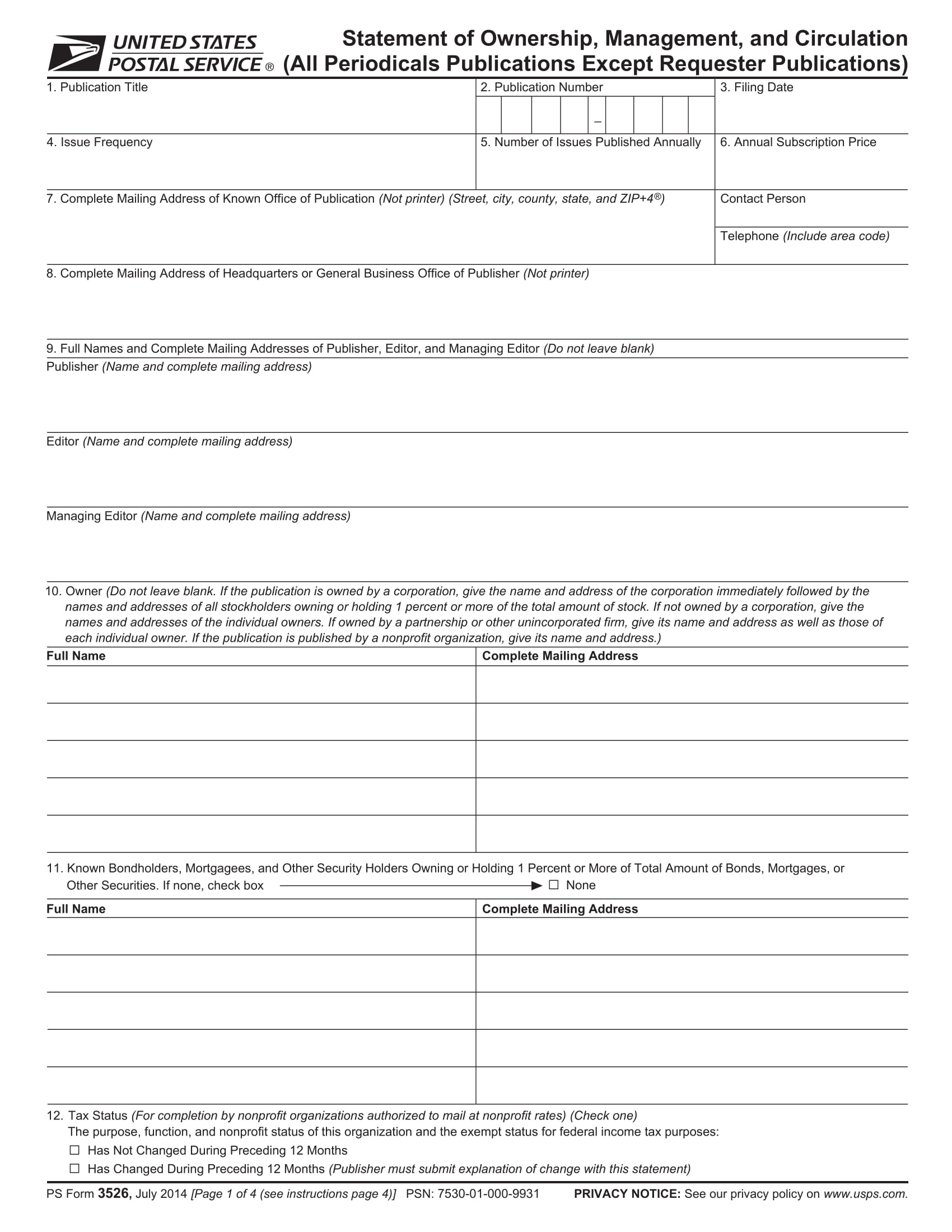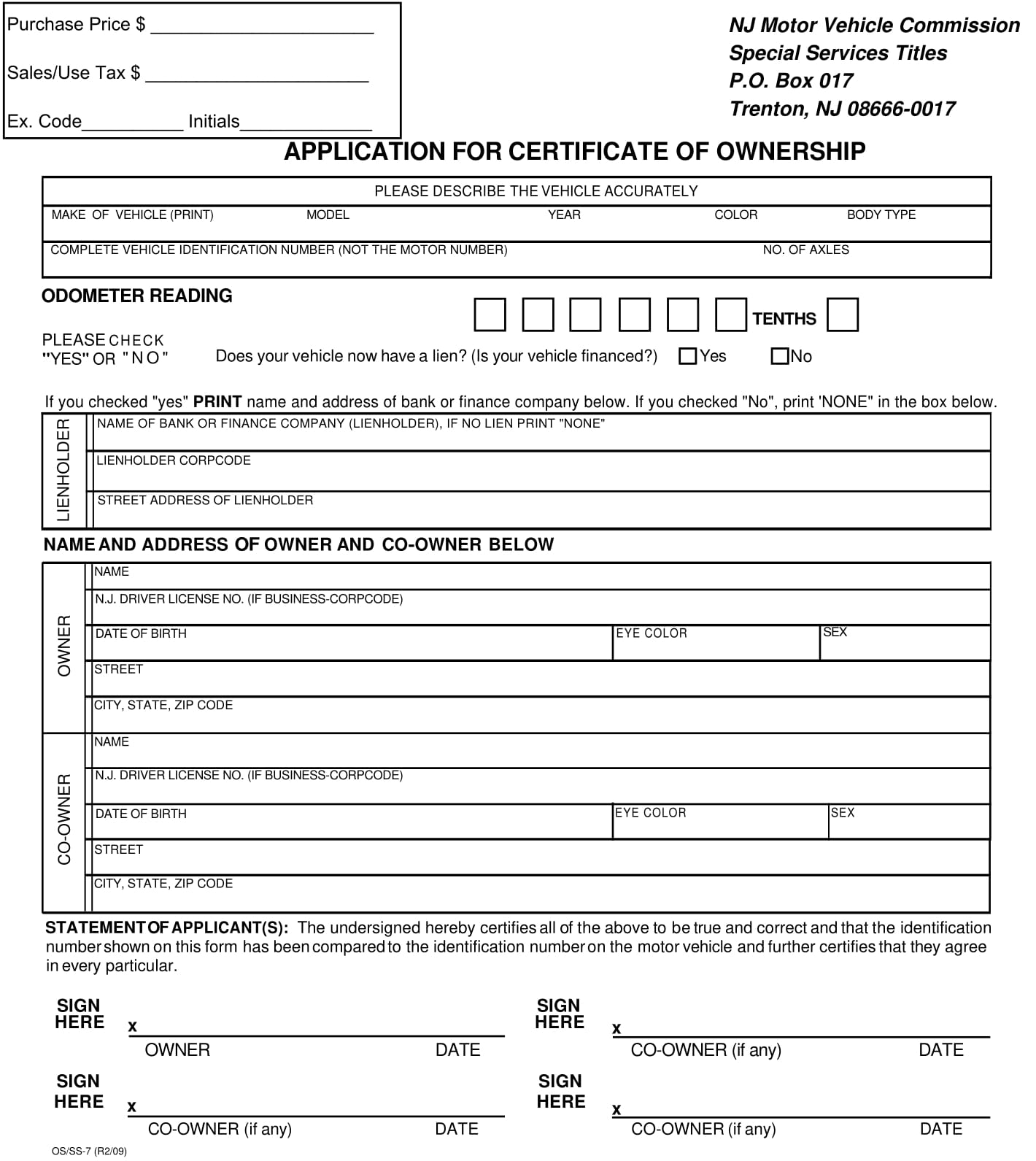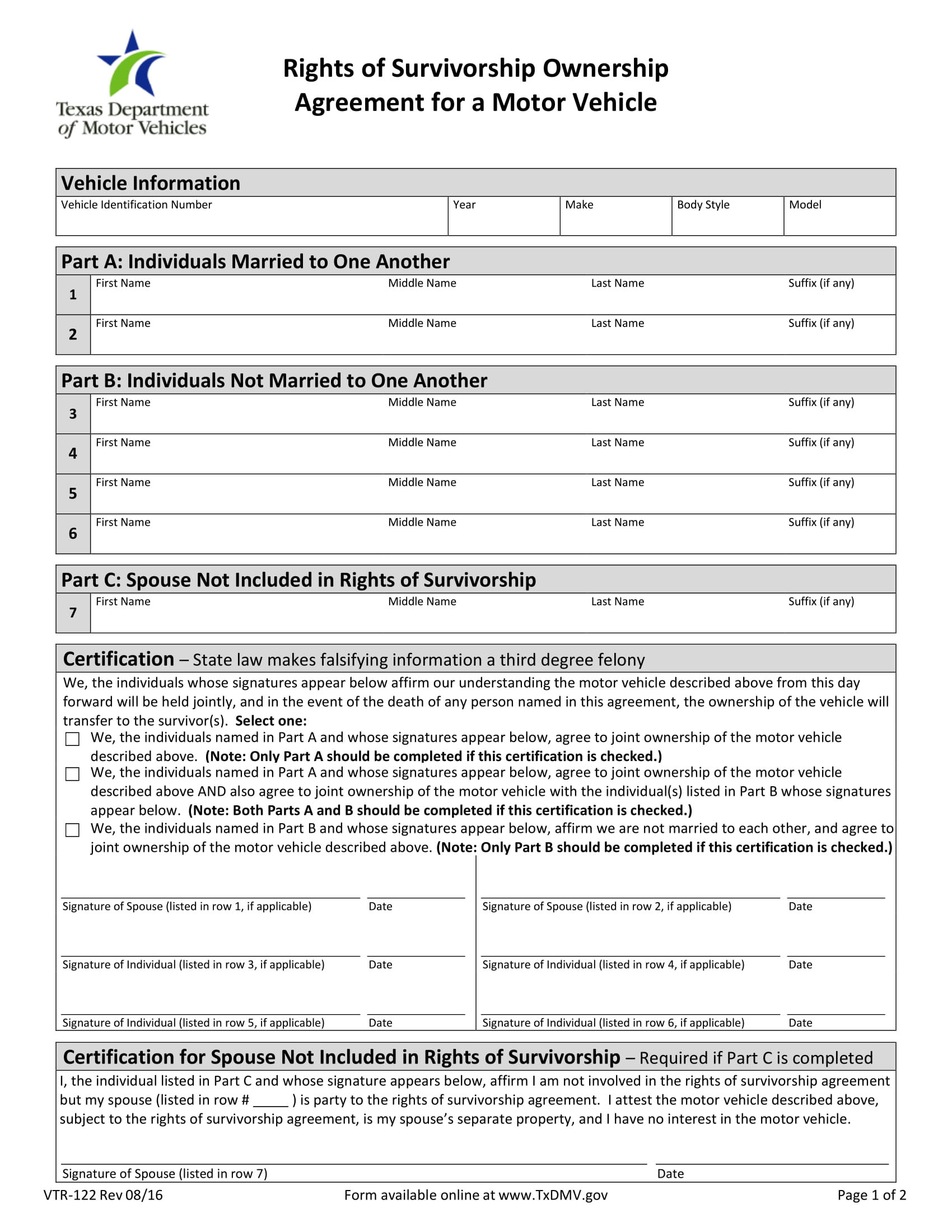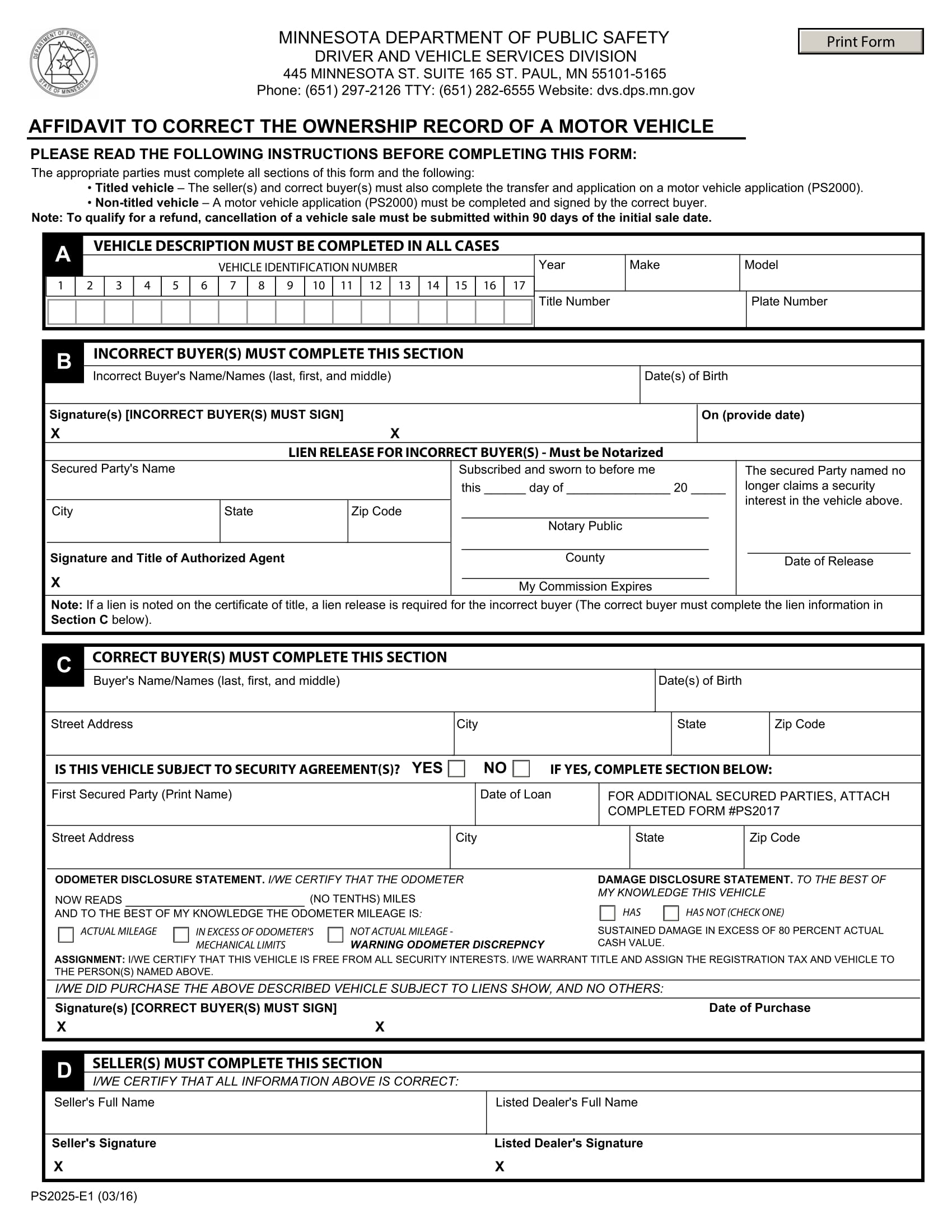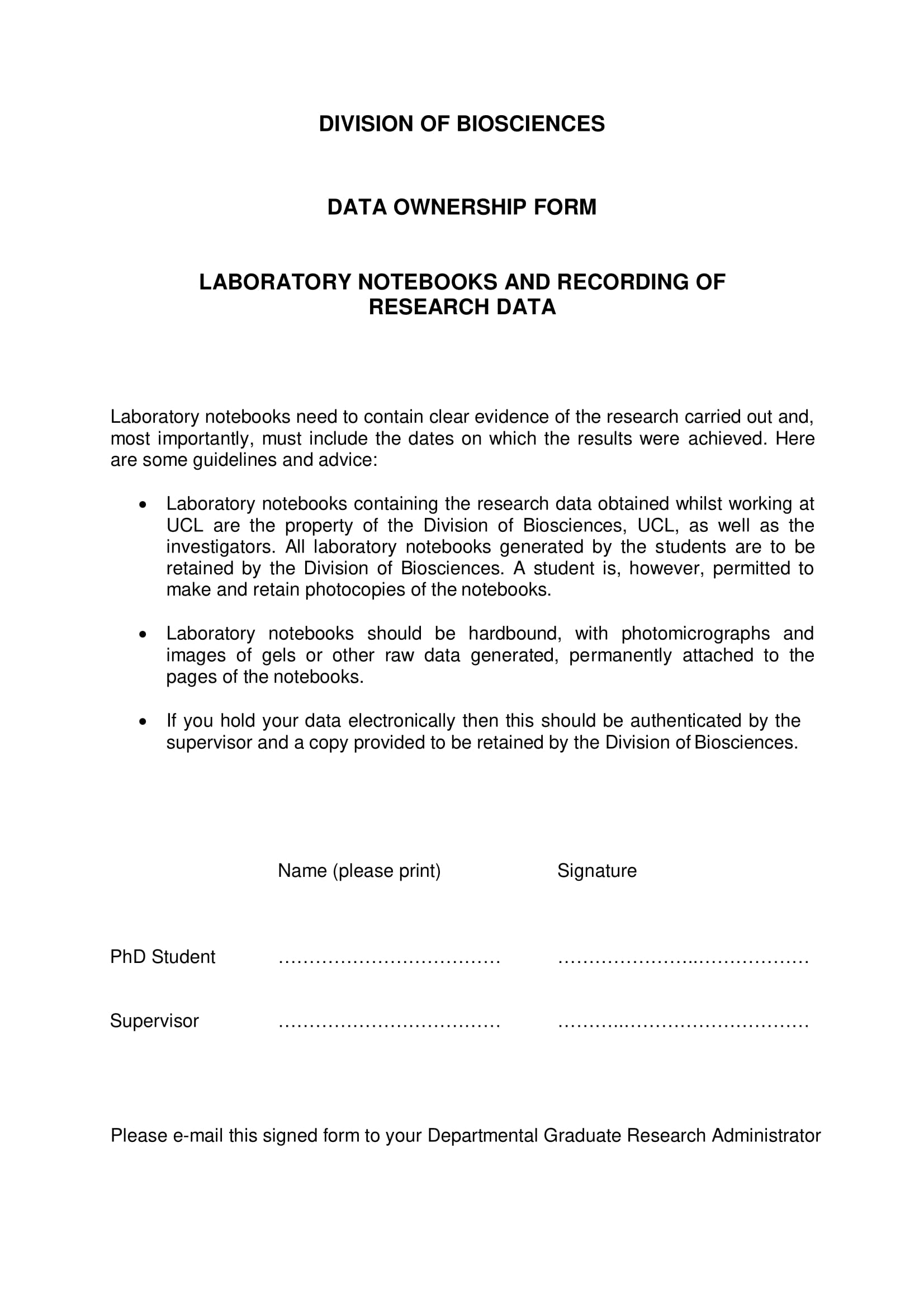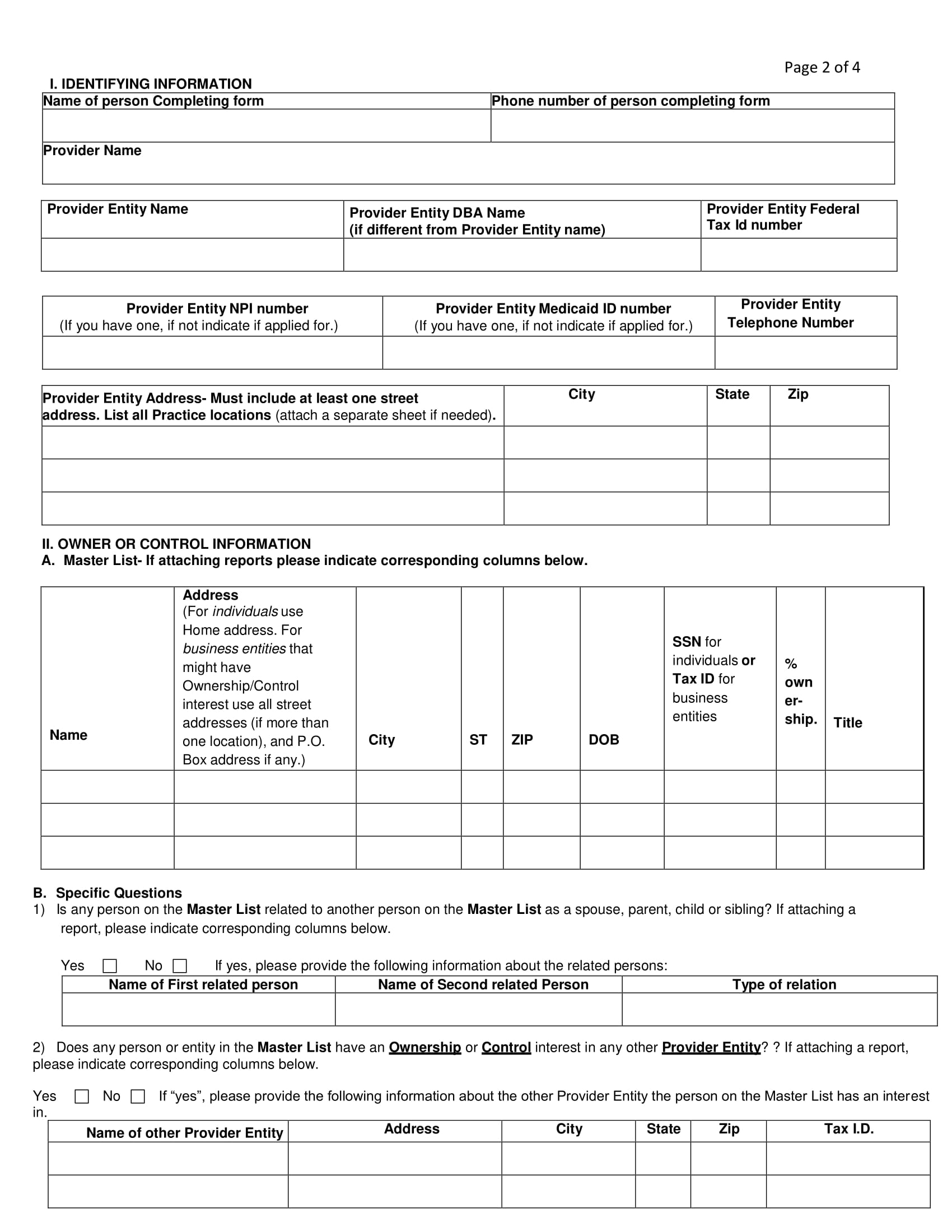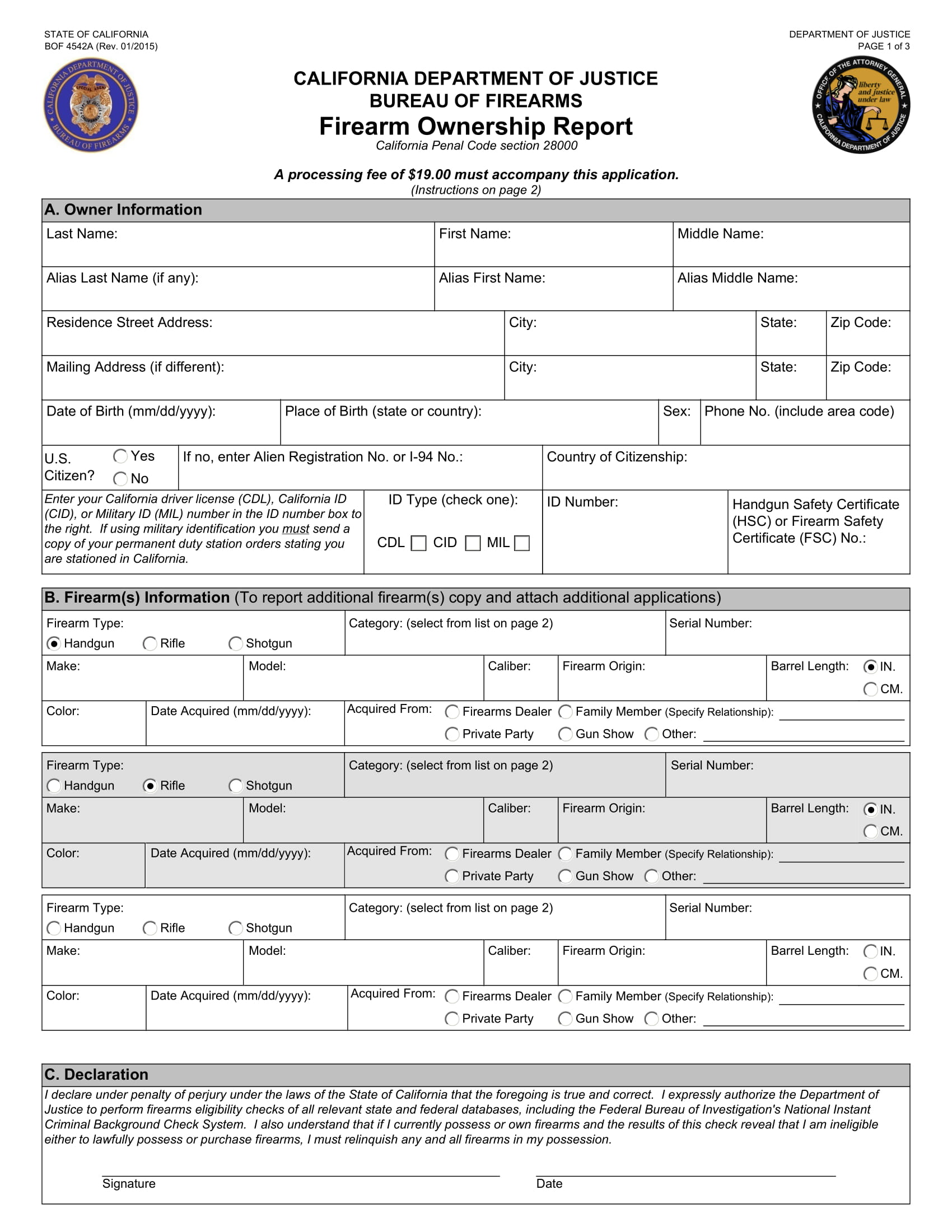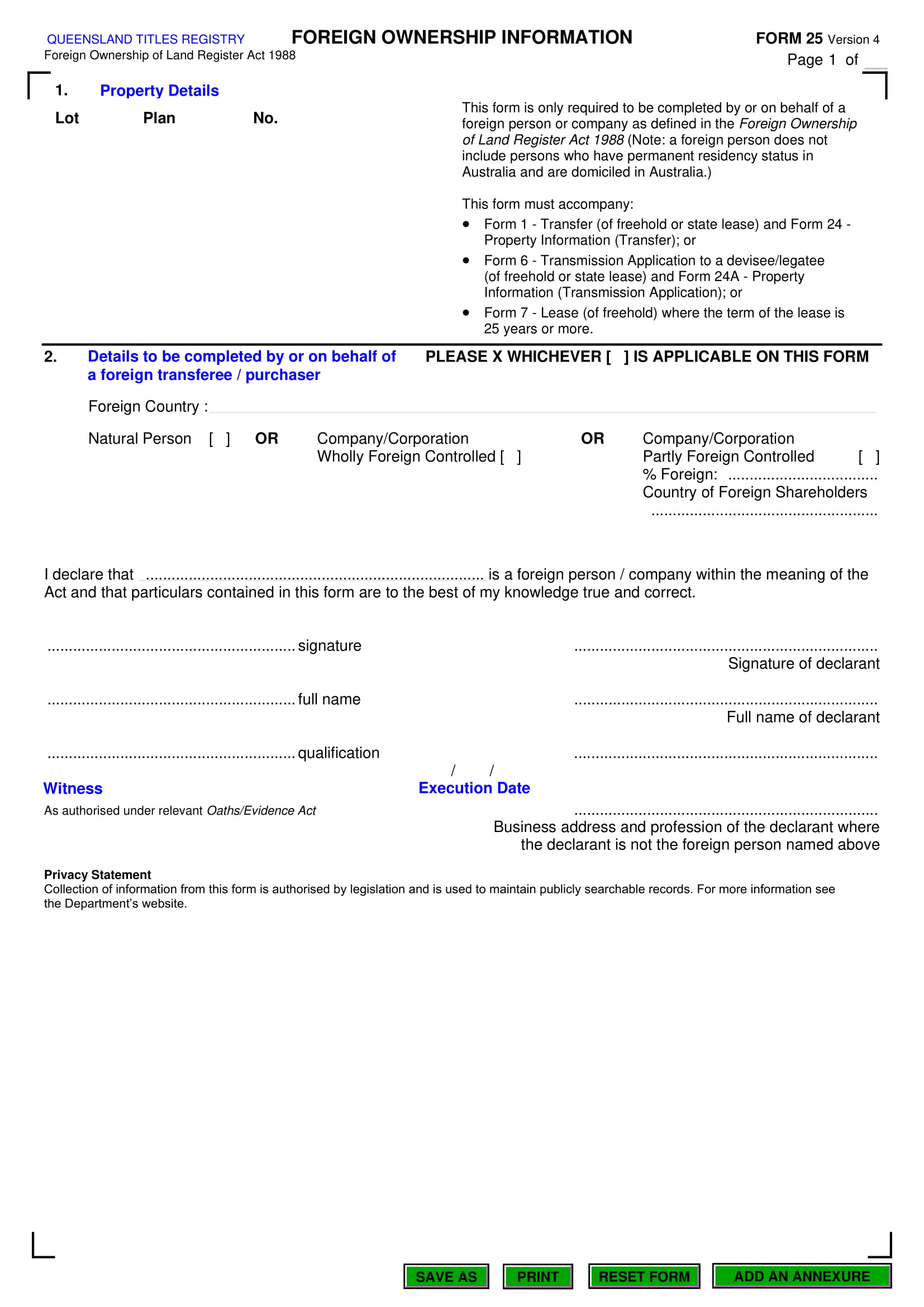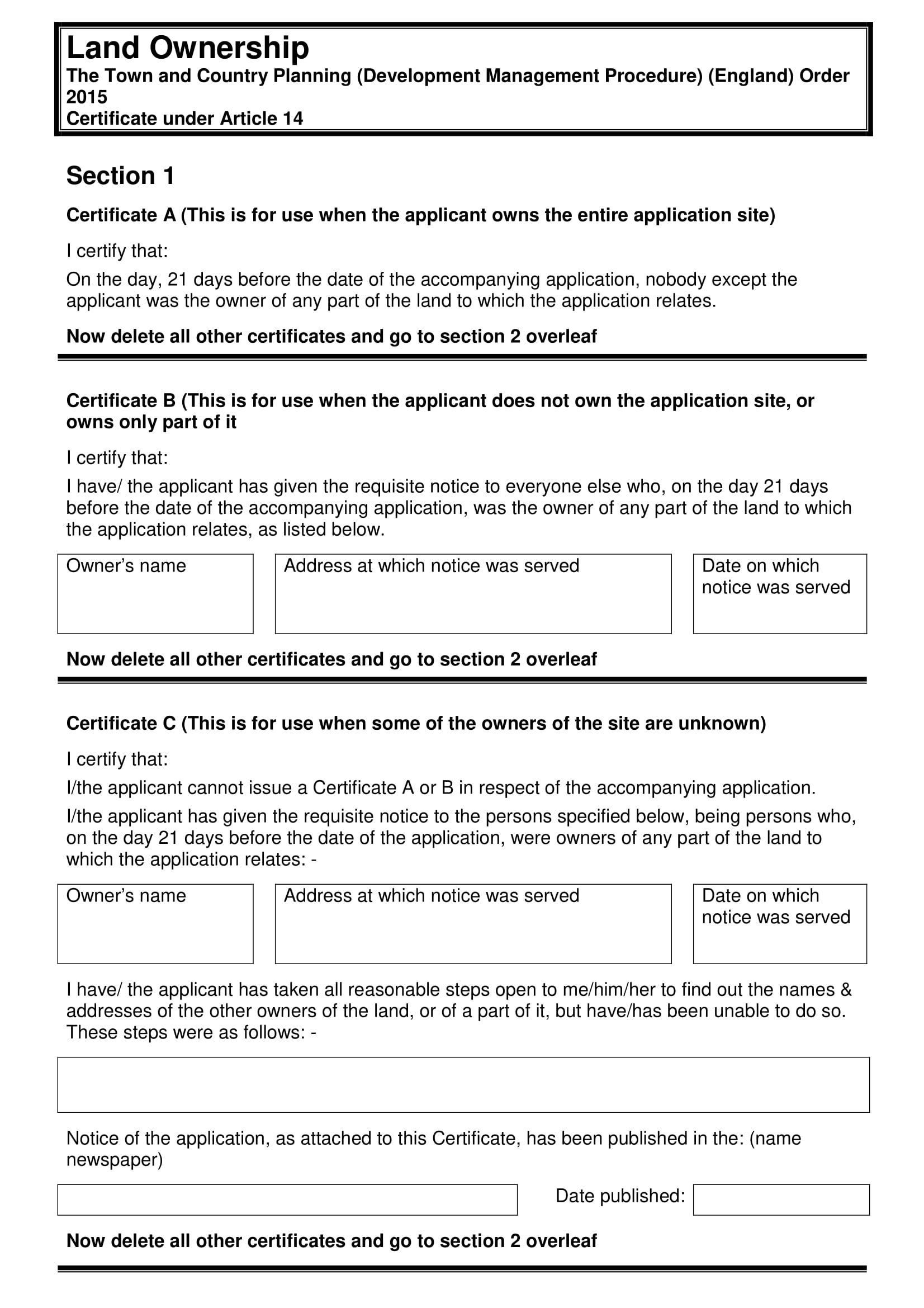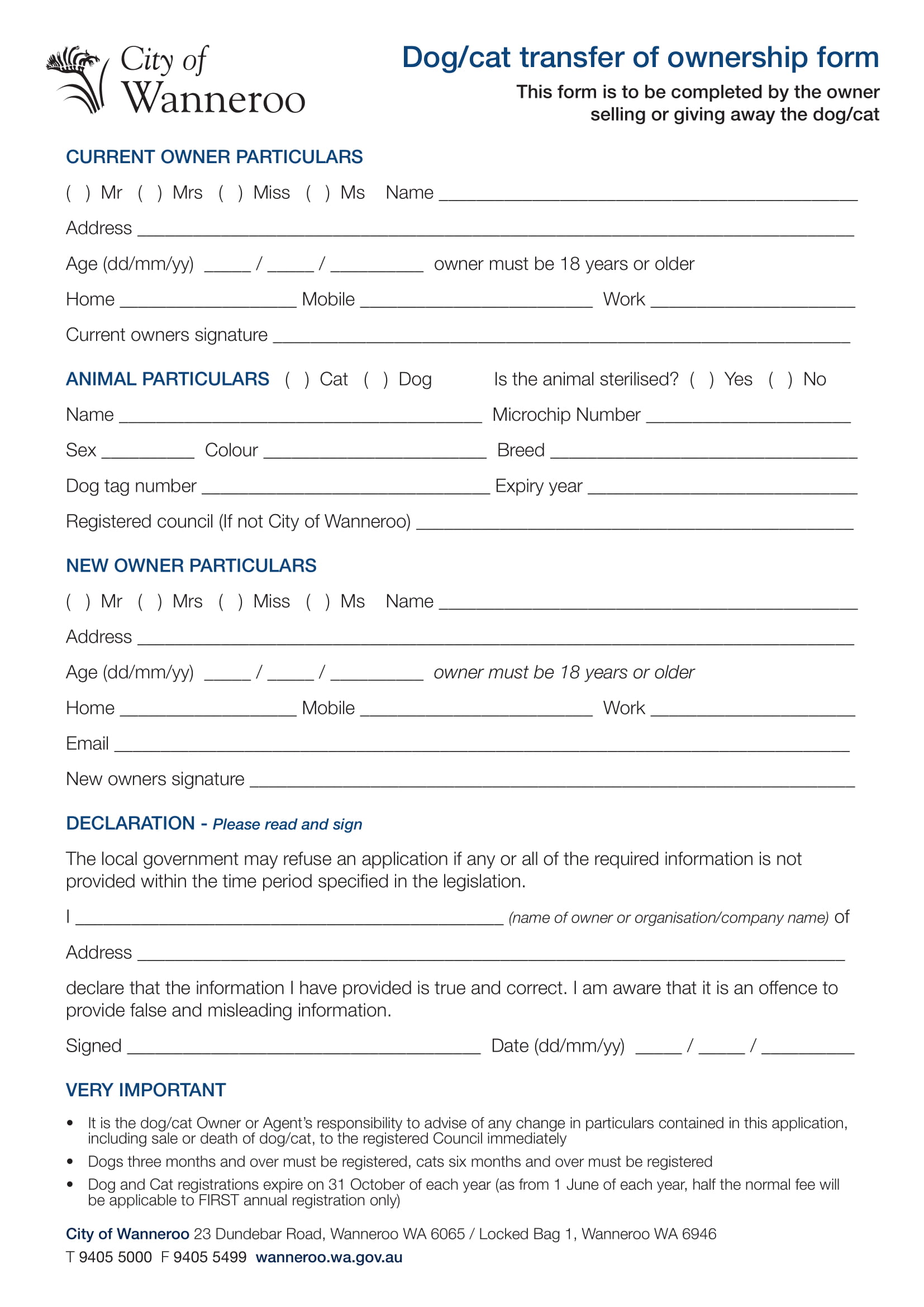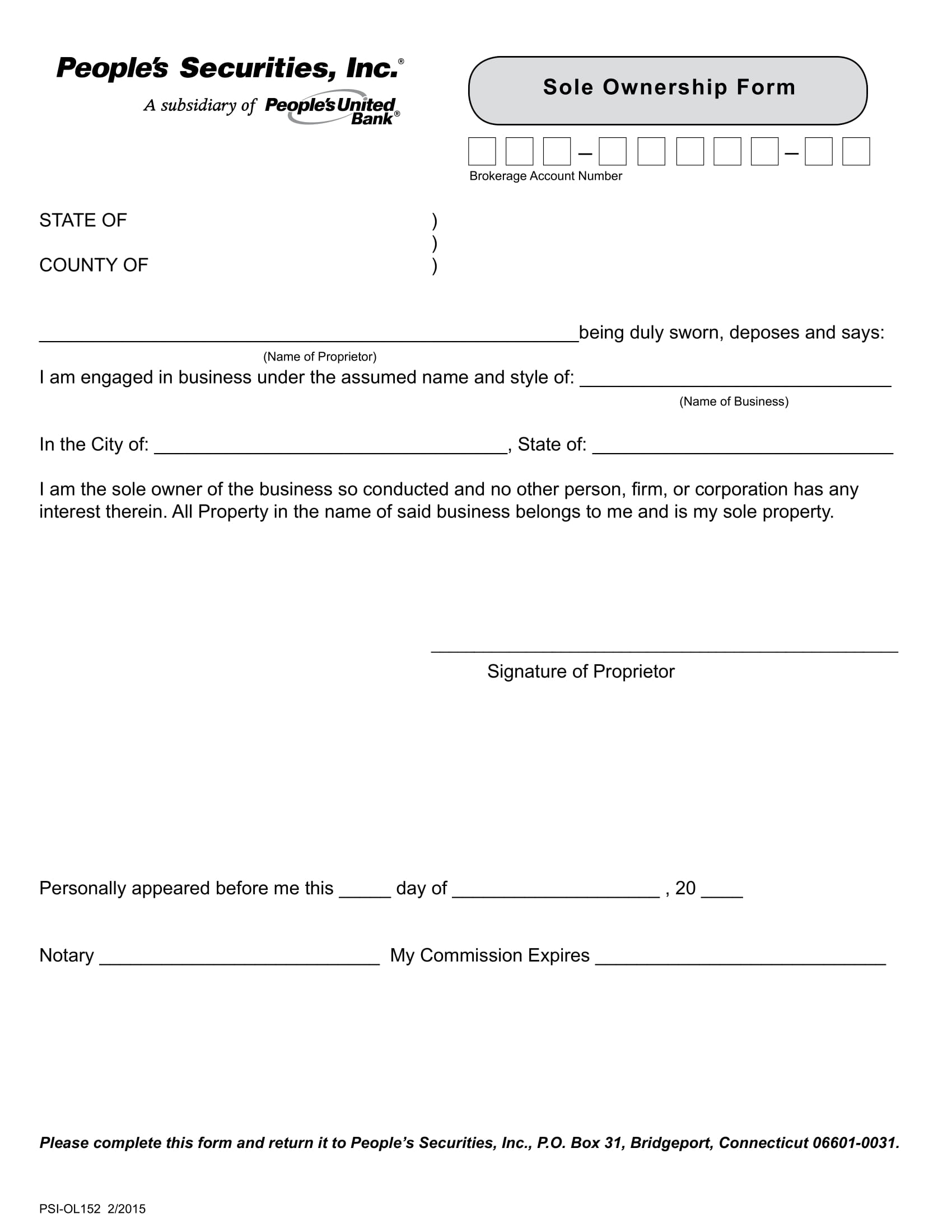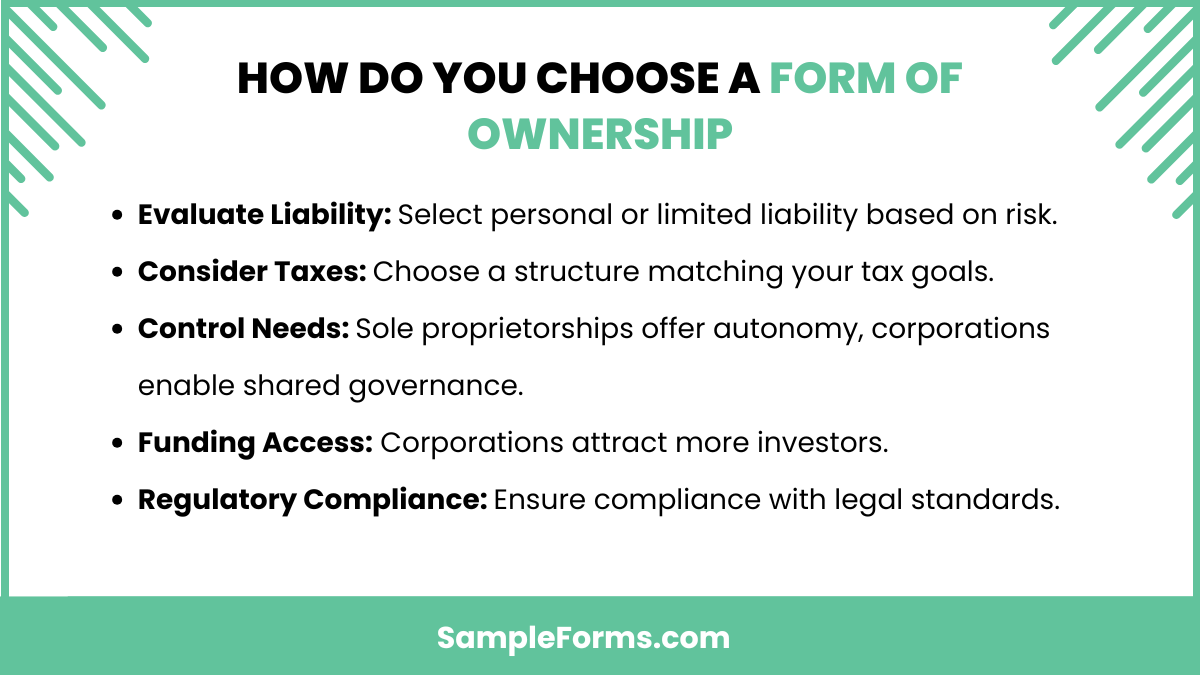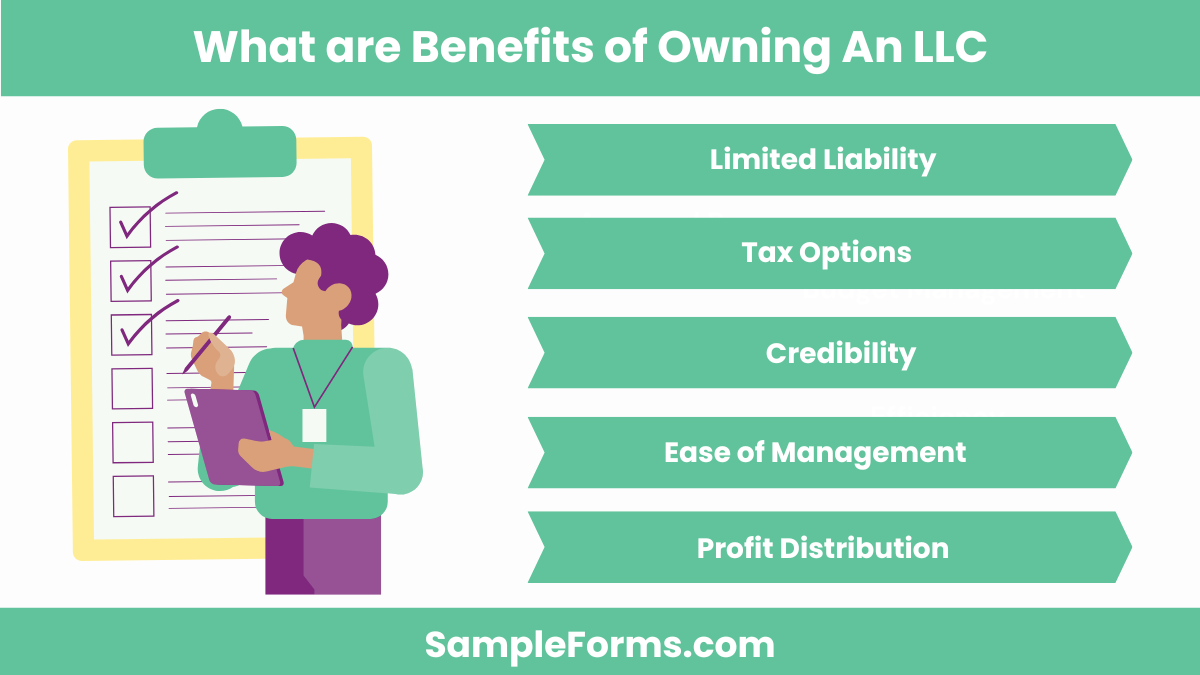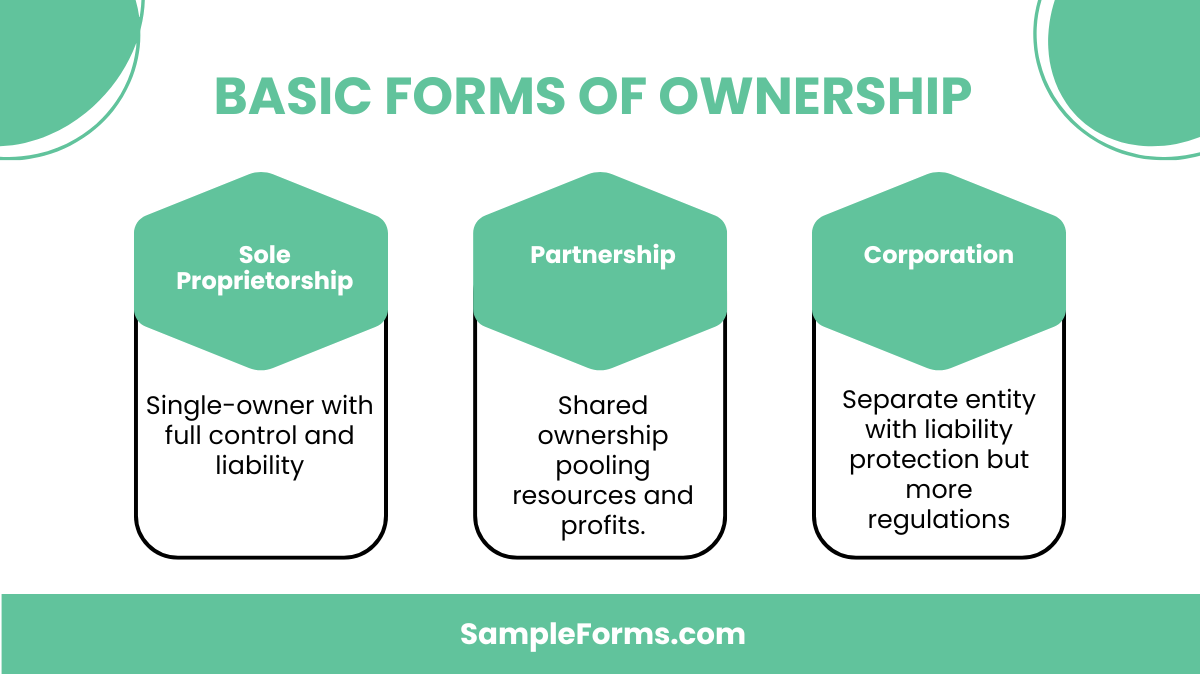A Legal Ownership Form ensures rightful ownership documentation for property or assets. This guide covers its structure, benefits, and practical usage to secure ownership rights. Incorporating a Legal Form, it simplifies legal compliance while safeguarding your assets. Understand its critical elements, such as owner details, property descriptions, and declaration clauses, for seamless application. Whether for personal or business use, this form provides a foundation for transparent agreements and ownership clarity. Let’s dive into examples and expert recommendations to effectively utilize this tool.
Download Legal Ownership Form Bundle
What is Legal Ownership Form?
A Legal Ownership Form is a document used to establish rightful ownership of assets or properties. It includes essential details such as owner identity, property specifics, and terms of ownership. This form prevents legal disputes, provides evidence of ownership, and ensures clarity during transactions. Widely used in real estate, business, and personal dealings, it’s a key tool for confirming ownership claims with confidence.
Legal Ownership Format
Title of Form:
[Indicate the purpose, e.g., “Declaration of Legal Ownership.”]
Details of the Property/Business:
- Name: [Name of the property or business.]
- Address/Location: [Physical address or location details.]
- Registration Number: [If applicable, provide a registration or identification number.]
Owner’s Information:
- Full Name: [Name of the owner(s).]
- Contact Information: [Phone number and email address.]
Ownership Declaration:
- Percentage Ownership: [Specify ownership percentages if applicable.]
- Effective Date: [Indicate when the ownership became effective.]
Terms and Acknowledgments:
[Include any legal disclaimers, obligations, or agreements related to ownership.]
Signature:
[Provide space for the owner(s) to sign and date.]
Legal Ownership Form for Business
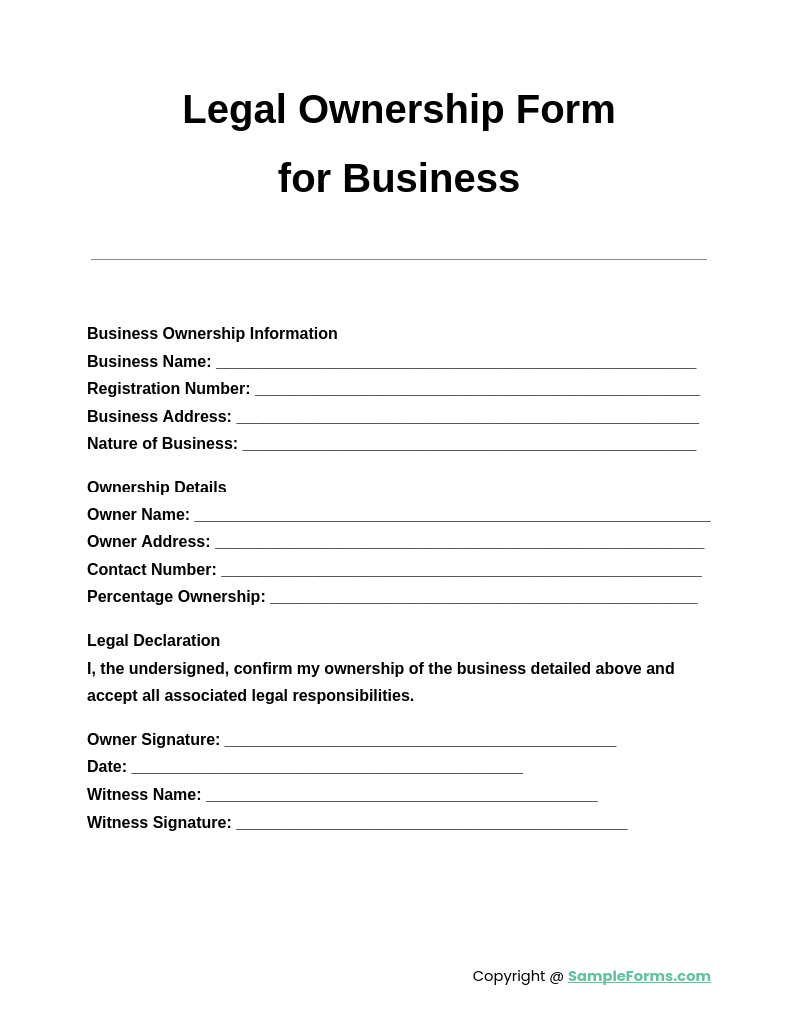
A Legal Ownership Form for Business secures rightful ownership of business assets and rights. It clarifies ownership shares and reduces disputes. Similar to a Transfer of Ownership Form, it simplifies transitions during mergers, acquisitions, or structural changes.
Declaration of Legal Ownership Form
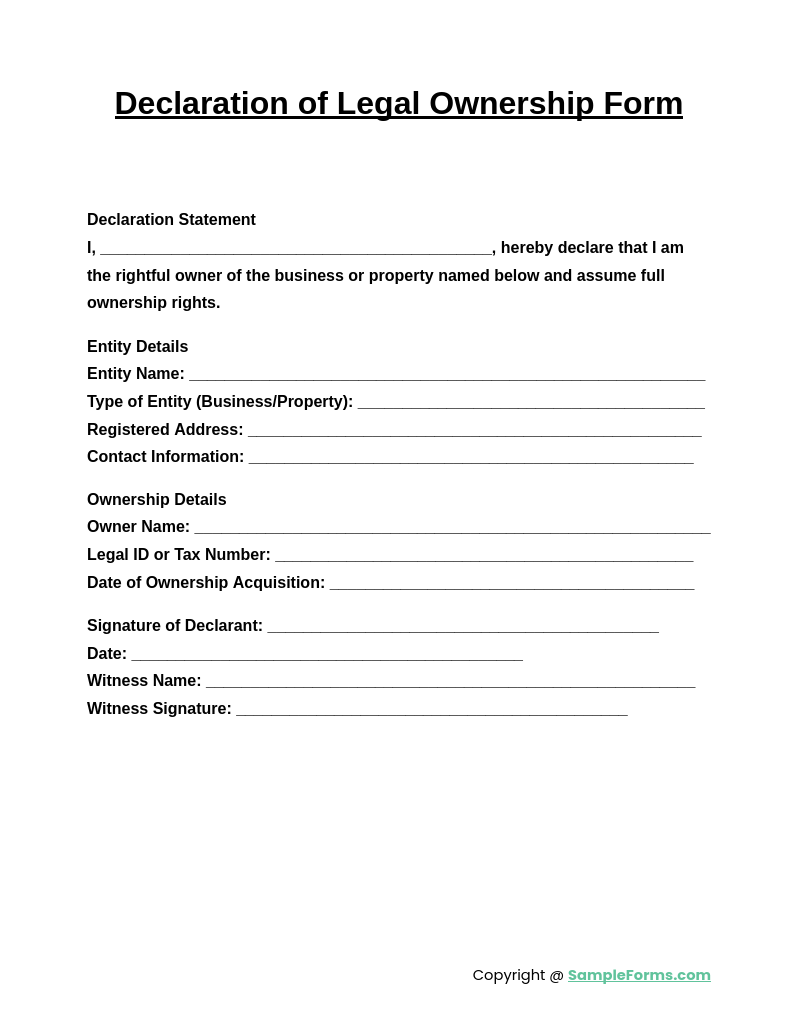
A Declaration of Legal Ownership Form is used to affirm ownership rights. This legal document ensures transparency in ownership. Comparable to an Ownership Transfer Form, it’s vital during property or asset handovers for compliance and clarity.
Legal Ownership Release Form
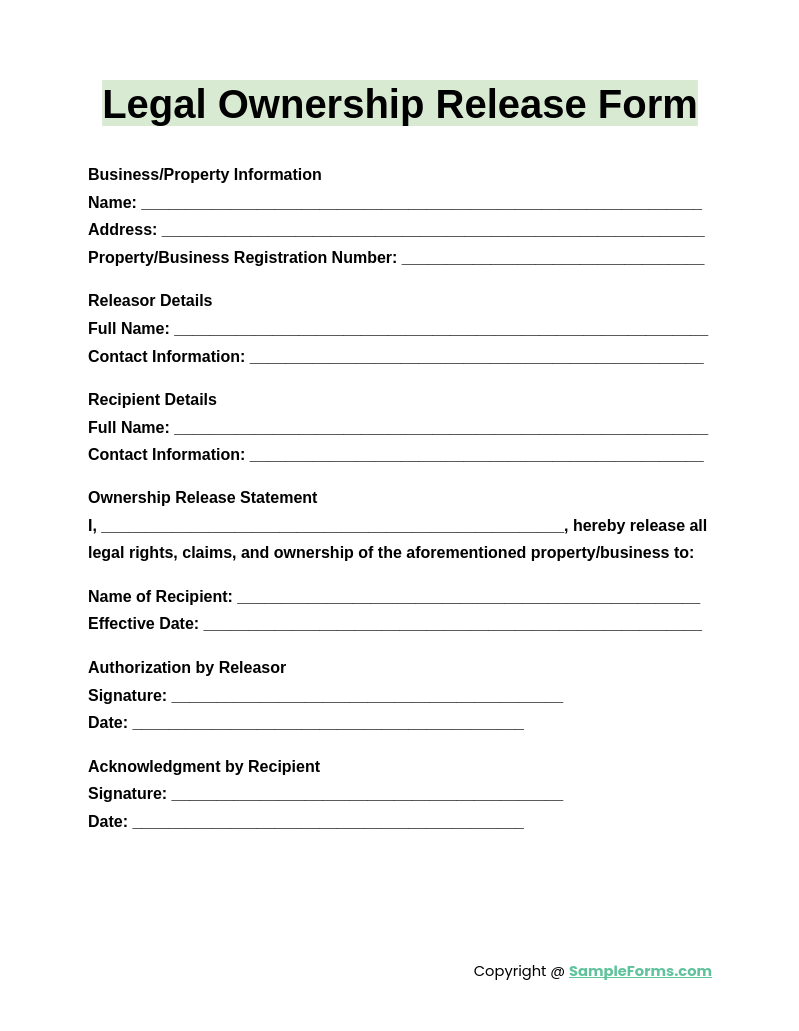
A Legal Ownership Release Form officially relinquishes ownership claims over a property or asset. Like a Restaurant Transfer of Ownership Form, it provides legal acknowledgment of the change, safeguarding both parties involved in the agreement.
Legal Ownership Form for Small Business
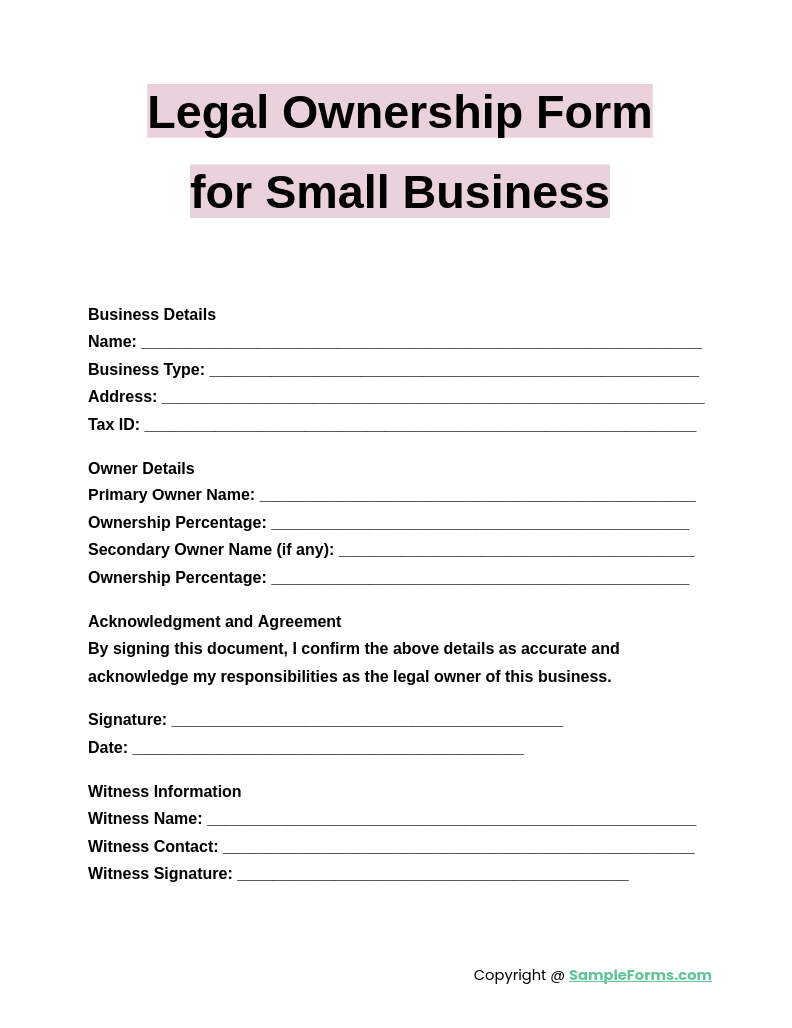
A Legal Ownership Form for Small Business is tailored for small enterprises, documenting ownership details effectively. This form, akin to a Legal Petition Form, offers clarity and legal security during business transactions or ownership disputes.
Browse More Legal Ownership Forms
Legal Consent to Transfer Ownership Form
Legal Statement of Ownership Form
Legal Vehicle Ownership Certificate Application Form
Legal Vehicle Rights of Survivorship Ownership Form
Legal Affidavit Ownership Record Correction Form
Legal Data Ownership Form
Legal Disclosure of Ownership Form
Legal Firearm Ownership Report Form
Legal Foreign Ownership Information Form
Legal Land Ownership Form
Legal Pet Ownership Transfer Form
Legal Sole Ownership Form
How do you choose a form of ownership?
Choosing a form of ownership depends on liability, taxes, control, and business goals. Filing a Legal Application Form ensures compliance with state and federal regulations.
- Evaluate Liability: Decide on personal versus limited liability based on risk tolerance.
- Consider Taxes: Opt for structures that align with your tax strategy.
- Control Needs: Choose sole proprietorships for autonomy or corporations for shared governance.
- Funding Access: Partnerships and corporations often attract more investors.
- Regulatory Compliance: Ensure the chosen form meets state and local legal requirements.
What is the most common legal form of business ownership?
The most common legal form of business ownership is a sole proprietorship due to its simplicity and low cost. It requires minimal paperwork, often involving a Legal Guardian Form for asset management in case of incapacity.
- Ease of Setup: Sole proprietorships are straightforward to establish with minimal regulatory hurdles and costs.
- Full Control: Owners maintain complete decision-making authority over operations and strategies.
- Tax Benefits: Business income is reported as personal income, simplifying tax filings.
- Flexibility: Owners can easily adjust the business structure as needed.
- Personal Liability: While simple, owners bear unlimited liability for debts and obligations.
What are benefits of owning an LLC?
Owning an LLC offers benefits like liability protection, tax flexibility, and credibility. It ensures legal separation between personal and business assets, often needing a Legal Declaration Form for compliance.
- Limited Liability: Protects personal assets from business debts and legal issues.
- Tax Options: Owners can choose between being taxed as a sole proprietorship, partnership, or corporation.
- Credibility: Adds professional credibility, fostering trust with clients and partners.
- Ease of Management: Requires less formalities than corporations, with simplified processes.
- Profit Distribution: Owners can decide profit allocation without strict proportionality.
What are the basic forms of ownership?
The three basic forms of ownership are sole proprietorship, partnership, and corporation. A Legal Guardianship Form may apply in cases of shared ownership responsibilities in partnerships or family businesses.
- Sole Proprietorship: Single-owner business with full control and personal liability.
- Partnership: Business shared by two or more people, pooling resources and profits.
- Corporation: A separate legal entity offering liability protection but requiring more regulations.
What is a legal document that proves ownership of a property called?
A legal document proving ownership is a property deed. Drafting it often involves a Legal Services Contract Form to ensure accuracy and enforceability.
- Types of Deeds: Includes warranty deeds, quitclaim deeds, and grant deeds.
- Essential Elements: Must contain grantor/grantee names, property description, and legal language.
- Signing and Notarization: Requires proper execution and notarization for validity.
- Recording: Filed with the county recorder’s office to establish public ownership record.
- Title Insurance: Ensures there are no undisclosed liens or claims on the property.
What is the best legal form of ownership?
The best legal form of ownership depends on liability protection, tax benefits, and business goals. Sole proprietorships and LLCs often top the list for flexibility. Legal Statement Form may support ownership declarations.
Which is the most complicated form of ownership?
Corporations are the most complex ownership form due to strict legal, tax, and regulatory requirements. They involve shareholders, directors, and corporate bylaws. Restaurant Legal Form ensures compliance in specific industries.
What does ownership mean legally?
Legal ownership is the right to use, manage, and transfer a property or asset under law. Documentation like a Claim Form ensures proof of ownership and rights over the asset.
What form of ownership is best for my business?
The ideal ownership form balances liability protection, taxation, and management style. LLCs are versatile for many business types. A Warranty Claim Form Form secures your rights for related assets.
What are the drawbacks of being a sole proprietor?
Sole proprietors face unlimited personal liability, limited funding options, and sole responsibility for business debts. A Statement of Claim Form may protect rights in disputes arising from liabilities.
Is title the same as ownership?
Title represents legal ownership of property or assets, but not all titles provide full ownership rights. A Quit Claim Deed Form may transfer partial interests without guarantees.
What is the safest form of business ownership?
LLCs are considered safest due to liability protection and flexible tax structures. Proper documentation, such as an Insurance Claim Form, safeguards assets under business policies.
How do you choose a form of ownership?
Consider liability, tax implications, and operational needs. Consulting with legal experts ensures proper setup. Using forms like a Small Claim Form streamlines disputes and formalities.
What is the easiest form of ownership?
Sole proprietorship is the simplest form, requiring minimal paperwork and regulation. Legal protections are limited but manageable with documents like a Travel Expense Claim Form for accountability.
What is the oldest form of ownership?
Individual ownership is the oldest form, dating back to ancient times. It emphasizes personal rights and responsibilities. A Travel Insurance Claim Form can document risk protections tied to ownership.
A Legal Ownership Form is essential for safeguarding ownership rights and ensuring legal compliance. This guide highlights its structure, examples, and practical uses. By adopting a precise Disability Claim Form approach, you can streamline ownership declarations and prevent future disputes. Leverage the insights shared to create, complete, or validate your form effectively. Legal documentation simplifies asset management and protects your rights efficiently.
Related Posts
-
FREE 4+ Uniform Commercial Code Forms in PDF
-
FREE 7+ Satisfaction of Mortgage Forms in PDF | MS Word
-
Notary Acknowledgment Form
-
FREE 10+ Car Sale Forms in PDF
-
FREE 3+ Acknowledgment of Paternity Forms in PDF
-
FREE 6+ Safety Acknowledgment Forms in PDF | MS Word
-
FREE 6+ Witness Acknowledgment Forms in PDF | MS Word
-
Character Reference for Court Recommendation Letter
-
License Agreement Short Form
-
FREE 10+ Trademark Assignment Forms in PDF | MS Word
-
FREE 13+ Trademark License Agreement Forms in PDF | MS Word
-
FREE 4+ Limited Partnership Agreement Long Forms in PDF | MS Word
-
FREE 5+ Movable Hypothec Long Forms in PDF | MS Word
-
FREE 4+ Articles of Association Long Forms in PDF | MS Word
